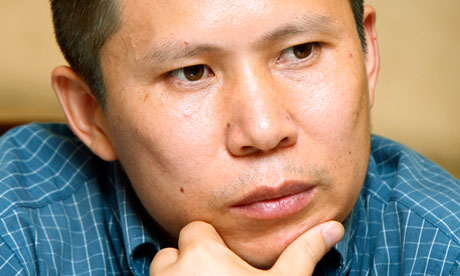Thursday, September 26, 2013
Curse of the Golden Flower
Although this movie has no historical references whatsoever, it is still interesting to get a sense of Chinese culture, fashion, and values from this movie. I highly recommend this movie and would have to say it's one of my favorite Chinese movies of all times. Watch it in Chinese with English subtitles though because I've seen the dubbed versions and the translations were horrible and difficult to get the point across.
The film does an AMAZING job at showing the splendor of ancient Chinese dynasties. The filmography and setting is beautiful. They also show quite a bit of Chinese culture as well including favoring the eldest son (In Chinese culture they tend to bare the most responsibilities), rituals such as Chung Yeung festival.
The costume in this movie is beautiful as well. I'm pretty sure its not historically accurate--for example the empress' nail extensions were not popular until the 1500's I believe. The elaborate costumes might have been similar they seem pretty consistant in Chinese movies and dramas for the royal family.
Tuesday, September 17, 2013
China: Government Control Over Social Media
http://www.theguardian.com/world/2013/sep/17/chinese-communist-party-online-crackdown
This article sheds light onto a a concept that we might not be very familiar with: the lack of freedom of speech.
As discussed in class a few weeks ago, most Asian countries value the community as a whole, rather than individuals--therefore the concept of freedom of speech might not hold as much value as it would here in America.
The article talks about large scale online bloggers that has come under fire for their use of blogging materials (usually against the government) feeding the wrong information to its followers. China is known for heavy censorship by their government for social media and this was no exception. Heavy fines and even prison time are the consequences of speaking out against the government. The government claims:
The Communist party's top theoretical journal – Qiushi, or Seeking Truth – warned that some were using internet freedoms "to engage in wanton defamation, attacking the party and the government …The internet is full of all kinds of negative news and critical voices saying the government only does bad things and everything it says is wrong."This is a prime example of China's authoritarianism where the central government has all the legal power opposed to democracy where the power is split between groups.
Thursday, September 12, 2013
India and Violence against women
http://www.theguardian.com/world/2013/sep/07/gang-rape-fear-anger-delhi-slums
This article touches 2 issues:
1. Violence against women
2. Is that violence against women a direct correlation to the growing economy?
There has always been an issue of violence against women--that has not changed. What has changed is that people are now more freely open to discuss women's rights which makes this issue more apparent. In the article, it states that:
The wave of public revulsion and anger in India prompted by the incident has had some effect, campaigners said. "There is certainly more debate. There's a change in the vocabulary used and police are much more alert. And younger women today are not going to go back to the previous time when they would just stay silent," said Vrinda Grover, a lawyer and human rights activist.The women today have more of a voice as these human rights activists empower them to speak out against violence. According to Jason Temasfieldt:
Jason Temasfieldt, who launched a campaign against harassment of women in India's commercial capital of Mumbai after his cousin was stabbed to death after intervening to try to protect a female friend, said he had seen a "drastic change" in terms of awareness.These "drastic changes" will hopefully lead to a decline in violence against women over time.
Another question is whether that growing gang violence against women a direct correlation to the growing economy? I think yes--but not just to women in particular, but to the overall increase in crime and violence. A growing economy means a larger urban population, a larger working class, and a government struggling to keep up with all of this. What I mean by "struggling" is its inability to properly take care of every single person within its large cities by means of sanitation, public rights, public safety, public infrastructure, and the list goes on. A growing economy means a large number of people would be migrating to the cities for work, which increases the demand for housing. Overpopulation in the cities is a huge problem in India and the police force is not large enough to cover every corner of the city which makes it inefficient to stop crimes and violence.
Thursday, September 5, 2013
Chapter 2
Confucianism values education, ethics, social justice, and integrity. Many of these values are still prevalent in China today. I have family in Southern China in Macau, Hong Kong, and Guang Zhou and Confucianism explains why my family do the things they do. They highly value a good education and that is a considered a social status almost. Asian parents LOVE to compare their children with other asian parents. For example, a mom would brag about her child being accepted into Stanford and another would brag about their child being accepted into UC Berkeley. Schooling is usually the #1 topic at family gatherings and that just highlights how highly the Chinese value education--nevermind graduating and getting a good job.
Social harmony was also an important aspect in Confucianism. Social harmony meaning everybody knew their place. For example, a servant should not rebel against their master or a son should not rebel against their father. A husband should also show benevolence to his wife and in return, the wife should respect the husband. This kind of family harmony was central to Confucian thought and is prevalent in Asian culture. In my family, respect for your elders was very important. I never understood why Asian families tend to have a similar level of respect for elders until I learned about the basics of Confucianism and I begin to see it in my own family and other Asian families as well.
Subscribe to:
Posts (Atom)



